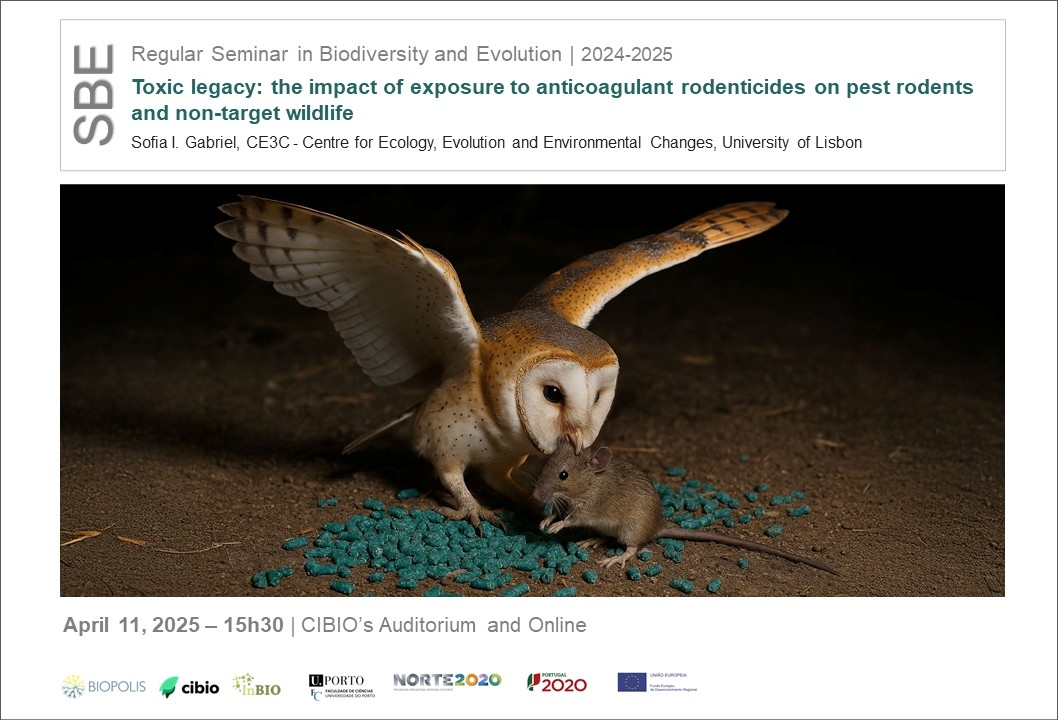Toxic legacy: the impact of exposure to anticoagulant rodenticides on pest rodents and non-target wildlife
11 Apr 2025 - Sofia I. Gabriel, CE3C - Centre for Ecology, Evolution and Environmental Changes, University of Lisbon | 15h30 | Hybrid Event

REGULAR SEMINAR IN BIODIVERSITY AND EVOLUTION
Synanthropic rodents are considered major pests worldwide, posing increasing economic and public health risks, against which exhaustive efforts have been made towards the implementation of control/eradication strategies. The use of anticoagulant rodenticides (ARs) is by far the most widely used method for pest control on a global scale, since their development in the 1950s. Their mechanism of action is essentially based on disrupting the blood coagulation cascade, causing internal bleeding, and eventually death. Due to limitations of alternative methods, there is a virtually total reliance on these compounds and no prospects of valid alternatives in a predictable future. While pivotal in controlling rodent populations and preserving various aspects such as infrastructure, agricultural yields, and native biota on islands worldwide, the application of ARs has raised significant concerns about their broader negative impact on non-target species, ecosystems, and public health. The emergence of rodenticide resistance in mice and rats only a few years after the initial use of these biocides added another layer of concern to an already multidimensional problem. Not only rodenticide resistance led to increased difficulties in rodent pest management, as it led to an even greater toxicological impact of ARs, extending far beyond target rodents. Secondary exposure of domestic animals and non-target wildlife, either through direct ingestion of rodenticide bait or by predation of poisoned prey, jeopardizes the animals’ own survival and raises safety concerns about environmental and human health.
Sofia Gabriel is a rodent biologist with a PhD in Evolutionary Biology, currently serving as an Assistant Researcher at CE3C - Center for Ecology, Evolution and Environmental Changes, at the Faculty of Sciences, University of Lisbon. During her career, she accumulated vast experience in field and lab work, mostly using commensal rodents (house mice and rats) as model species in an insular context. In this scope, she has mostly addressed research topics such as phylogeography, island colonization, chromosomal rearrangement and speciation. She has expanded her research areas of interest to more applied topics in rodent biology, focusing on the impact of synanthropic rodents as reservoirs of parasites and pathogens. Rodenticide resistance in pest mice and rats is now her main growing area of interest as well as the impact of anticoagulant rodenticides on both target rodents and non-target wildlife.
[Host: Zbyszek Boratyński, Biodiversity of Deserts and Arid Regions - BIODESERTS]
Zoom Link: https://videoconf-colibri.zoom.us/j/99797933081
Zoom Link: https://videoconf-colibri.zoom.us/j/99797933081